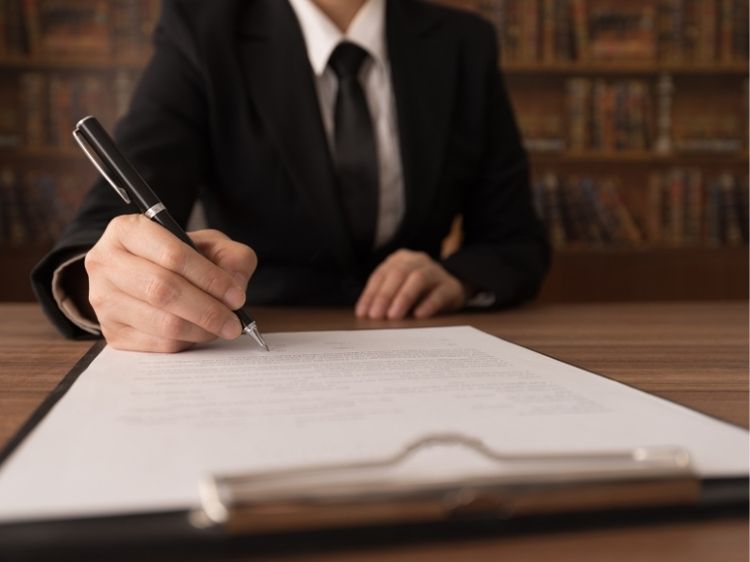Criminal law and procedure are the foundation for any system of law, making sure justice is done while safeguarding the rights of people. These laws regulate the prosecuting of crimes, establish the procedures to be followed in legal cases, and establish the guidelines that ensure fair trials. Understanding criminal law and procedures is essential for all those involved in the legal realm and also anyone who wants to be aware of their rights and obligations within society.
The Fundamentals of Criminal Law
Criminal law is a set of regulations that defines government violations as threatening or harming the public’s security and well-being. It imposes punishments on people who break these laws and aims to stop criminality and maintain law and order. The majority of crimes are classified as misdemeanours and felonies, with various degrees of severity and legal consequences.
The seriousness of felonies can typically result in severe penalties, which can include jail for more than one year, massive fines and even capital punishment in certain areas—crimes like murder, rape and the armed robbery fall under this category. Criminal offences, on the other hand, are not as serious crimes that could result in smaller jail sentences and fines or community service. Examples include minor theft, disorderly conduct and minor possession of drugs.
The process of prosecuting a criminal case starts by identifying the crime, followed by an investigation conducted by police agencies. After a sufficient amount of evidence has been gathered, the prosecutor decides whether to pursue an investigation against the accused. If charges are brought, the case is then referred to the system of criminal justice, where the suspect is entitled to legal representation and a fair trial.
Key Principles of Criminal Procedure
Criminal procedure is the law that governs the way criminal cases are dealt with, from initial investigation to the trial stage and finally sentencing. It ensures that the judicial and law enforcement authorities adhere to legal guidelines while protecting the rights guaranteed by the Constitution to defendants. The most essential element of criminal procedure is due process, which ensures the fairness and impartiality of legal instances.
The legal process starts with a police arrest, in which police need to have probable cause to bring someone into custody. When a person is arrested, the suspect will be informed about their rights, which include the right to keep silent and the right to seek legal counsel. These rights, referred to by the name of Miranda rights in the United States, protect individuals from self-incrimination as well as ensure the right to legal representation.
After being arrested, The accused is taken before an official judge for a preliminary hearing. At this point, the bail amount can be set, or pretrial detention can be imposed. The next step is official charges that are outlined at the time of an appearance in court. The defendant is required to enter an agreement to plead guilty, not guilty, guilty or no contest. If the plea isn’t guilty, the case moves to pretrial motions as well as discovery, in which both the prosecution as well as defence gather evidence and formulate their defences.
Trials form the basis of criminal procedures and law, which ensures the justice system is upheld via an organized legal procedure. The prosecution must establish the defendant’s guilt beyond a reasonable doubt, whereas defence attorneys challenge the evidence offered. The trial can include witness testimony, cross-examinations, and expert analyses. If a decision of guilt is made, sentencing is the next step, where a judge determines the proper punishment based on the statutory guidelines and aggravating or mitigating factors.
The Role of Legal Representation
Everyone accused of committing an offence is entitled to legal assistance. Defence attorneys play a vital role in protecting the rules of justice and ensuring their clients are given fair trials. Their duties include reviewing the case, contesting evidence, negotiating plea agreements, and arguing for leniency when it comes to sentencing. Public defenders assist those who cannot afford private attorneys, making sure that their financial status doesn’t hinder accessibility to justice.
Prosecutors represent the state and are charged with the burden of giving evidence and proving the defendant guilty beyond a reasonable doubt. Their job isn’t just to obtain convictions but also to seek justice. This means they must behave with integrity and fairness throughout the legal procedure.
Sentencing and Appeals
When a defendant is convicted and sentenced, the punishments they’ll be subject to are determined. Judges look at a range of factors, including the severity of the offence, previous criminal history, and the presence of aggravating or mitigating circumstances. The penalties vary from fines and probation to jail time and, in extreme circumstances, the death penalty.
Defence attorneys have the option to appeal a verdict or sentence when they feel that there is an error in the law that occurred in the course of the trial. The appeals process is reviewed by the higher courts that can annul convictions, require new trials, or alter sentences in the event of procedural errors or violations of constitutional rights have been discovered. The appeals process is a crucial part of procedures and law enforcement. It ensures the justice of those who appeal and that mistakes are corrected.
The Importance of Criminal Law and Procedure in Society
Criminal laws and procedures are essential to ensure order and protect the rights of the individual. They offer a procedure that balances the interests of the government with the rights of those accused. By establishing specific legal standards, these guidelines can prevent the wrongful conviction of innocent people and ensure that those who are guilty of violations are accountable.
Additionally, criminal law and procedures evolve constantly to reflect society’s changes. Innovations in forensic science, digital evidence, and human rights activism affect how the law is enforced and applied. While legal systems are adapted to changing circumstances, the goal remains the same: to protect justice, safeguard public safety, and safeguard individuals’ rights.


